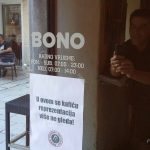Trial against Croatia’s football boss Zdravko Mamić continues.
On Monday, former boss of Dinamo Zagreb Football Club and the most influential person in Croatian football, Zdravko Mamić, declined to enter a courtroom at the Osijek County Court after he reacted to an informal conversation between prosecutors Sven Mišković and Tonči Petković and the presiding judge Darko Krušlin in a corridor in front of the courtroom, reports N1 on May 8, 2017.
“You do not allow me to say anything in the courtroom. I do not want to enter and we will talk via newspapers. What the f…ck are you laughing at,” screamed Mamić in the corridor and left the court building.
The court hearing included the testimony of new witnesses with regards to the charges that the accused damaged Dinamo for 116 million kuna and damaged the state budget for at least 12.2 million kuna. The hearing was attended by just one defendant, while Zdravko Mamić, his brother Zoran Mamić and Dinamo official Damir Vrbanović were represented by attorneys.
Senior inspector at the Department for Large Legal Entities of Tax Administration, Ana Štimac, testified that the tax supervision of Dinamo, which started in 2010, had determined that there were loans which had not been returned.
After having requested contracts from the club’s accountancy and supporting loan documents, Mamić called her by telephone and said that as an inspector she was no longer allowed to come to the club. She added that Mamić submitted a letter to the Tax Administration requesting that she as an inspector should be excluded from further supervision. However, she continued to carry out tax supervision, but did not come to the club premises again.
She also testified that Dinamo gave loans amounting to more than 24 million kuna to Zoran Mamić. The Tax Administration concluded that loans which were not returned should be treated as income, which means that all taxes and contributions should have been paid. Despite this, she said, the club reported that it would not pay taxes and contributions. An appeals commissions at the Tax Administration accepted Dinamo’s opinion, said the witness at the request of Mamić’s attorney Jadranka Sloković.
The head of the Department for Large Legal Entities, Srebrenka Pečenjak, also testified that during the tax supervision the issue of loans was raised. It was established that Dinamo was an association of citizens and that by granting loans it had started to perform business activities for which it was not registered. After the supervision was over, Dinamo was included in the system of businesses which have to pay corporate profit taxes.








